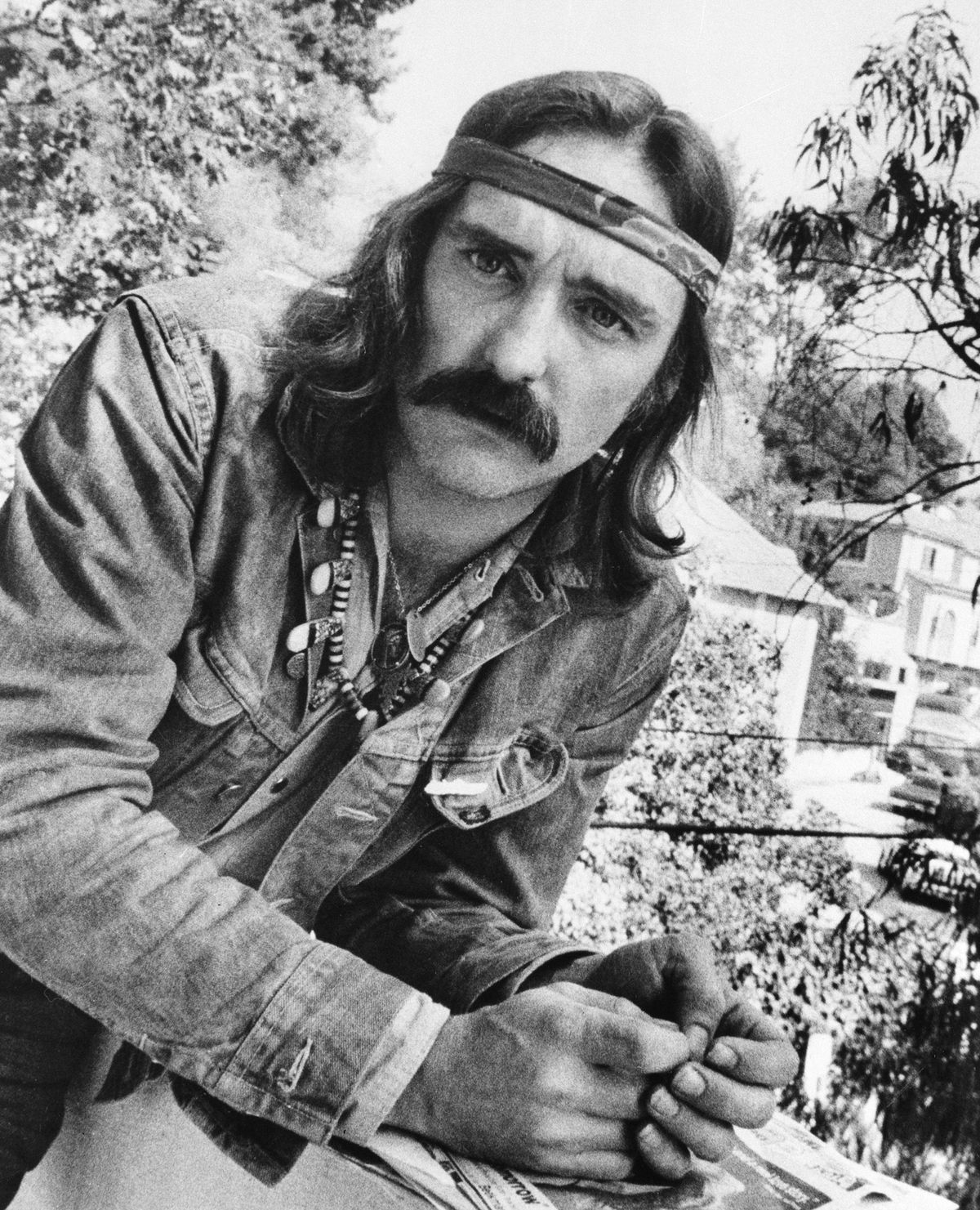‘Easy Rider’ star Dennis Hopper dies
Actor, director, 74, succumbs to cancer

LOS ANGELES – Dennis Hopper, the maverick director and co-star of the landmark 1969 counterculture film classic “Easy Rider” whose drug- and alcohol-fueled reputation as a Hollywood bad boy preceded his return to sobriety and a career resurgence in the films “Hoosiers” and “Blue Velvet,” died Saturday. He was 74.
A longtime resident of Venice, Calif., who also was known as a photographer, artist and collector of modern art, Hopper died at his home of complications from prostate cancer.
A frail-looking Hopper, whose battle with prostate cancer was revealed in October, was able to attend a ceremony for the unveiling of his star on the Hollywood Walk of Fame in late March.
In a more than five-decade acting career that was influenced early on by working with James Dean and studying at the Actors Studio, he made his film debut as one of the high school gang members who menace Dean in the 1955 classic “Rebel Without a Cause.”
Hopper went on to appear in more than 115 films, including “Apocalypse Now,” “Cool Hand Luke,” “Giant,” “Hang ’Em High,” “River’s Edge,” “Rumble Fish,” “Speed,” “The American Friend,” “True Grit” and “True Romance.”
But it’s his role as the long-haired, pot-smoking biker Billy opposite Peter Fonda’s Wyatt (Captain America) in the hit movie “Easy Rider” that gave Hopper his most enduring claim to fame.
The low-budget tale of two bikers on an ultimately tragic cross-country odyssey after scoring a big cocaine sale, “Easy Rider” became a generational touchstone.
The movie, which boasted a star-making performance from a little-known Jack Nicholson as a boozy small-town lawyer who goes along for the ride and gets his first taste of marijuana, set old-guard Hollywood back on its heels.
“The impact of ‘Easy Rider,’ both on the filmmakers and the industry as a whole, was no less than seismic,” Peter Biskind wrote in his 1998 book “Easy Riders, Raging Bulls: How the Sex-Drugs-And-Rock ’n’ Roll Generation Saved Hollywood.”
Another signature role was in “Apocalypse Now,” director Francis Ford Coppola’s 1979 nightmare vision of the Vietnam War. Hopper played a counterculture photojournalist, who is encountered in the compound of Marlon Brando’s insane, renegade Col. Kurtz and is prone to his own crazed rantings.
A post-rehab Hopper received a supporting actor Oscar nomination playing, ironically, the alcoholic father of a high school basketball player who sobers up briefly to become an assistant to Gene Hackman’s coach in the inspirational 1986 film “Hoosiers.”
But, as Hopper told the Times, “I’m not usually in one of those movies that leaves you feeling good when you leave the theater.”
That same year he appeared in “Blue Velvet,” writer-director David Lynch’s disturbing film in which Hopper played the mystery-substance-inhaling psychopathic killer Frank Booth, a character Time magazine critic Richard Corliss described as possibly “the vilest sadistic creep in movie history.”
As an actor, Hopper carved out his own particular niche as what one journalist called a “serial portrayer of weirdos,” including the maniacal bomber in “Speed” and the eye-patch-wearing villain with the shaved head in “Waterworld.”
Hopper was married five times – to Brooke Hayward, with whom he had a daughter, Marin; Michelle Phillips; Daria Halprin, with whom he had a daughter, Ruthanna; Katherine LaNasa, with whom he had a son, Henry; and Victoria Duffy, with whom he had another daughter, Galen.
In January, Hopper filed for divorce from Duffy, whom he married in 1996. She reportedly stated in court filings that Hopper filed for divorce to cut her out of her inheritance, which Hopper denied.